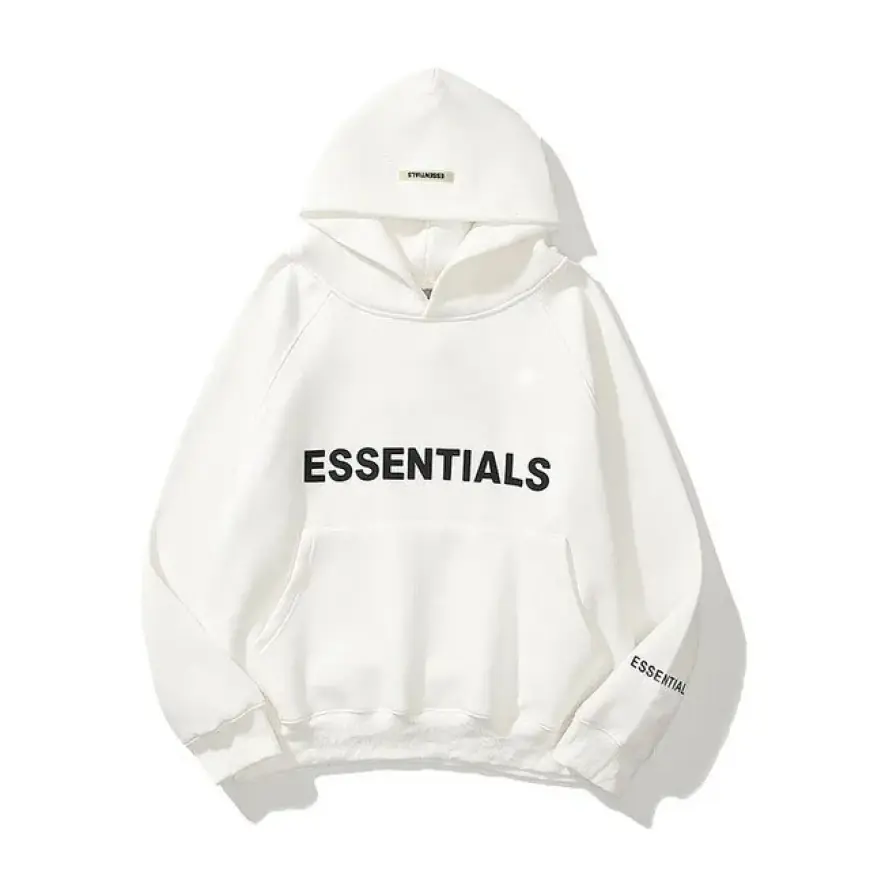Sustainable Style: The Essentials Hoodies Promise
This type of cotton is cultivated without harmful pesticides or synthetic fertilizers, making it a more environmentally friendly option. By choosing organic cotton, Essentials reduces its ecological footprint while providing consumers with soft and breathable fabric.

In today's fashion landscape, where sustainability is becoming increasingly vital, the Essentials Hoodie from Fear of God represents a commitment to ethical practices and eco-friendly materials. As a prominent player in contemporary streetwear, the brand recognizes its responsibility to address environmental concerns while delivering stylish and comfortable garments. This article explores the sustainable practices behind Essentials Hoodies, highlighting their promise to consumers and the fashion industry.
The Foundation of Sustainability
Sustainability in fashion encompasses various aspects, including material sourcing, manufacturing processes, labor practices, and overall environmental impact. Essentials Hoodies Fear of God Essentials aims to integrate these elements into its operations, although it faces challenges in establishing a comprehensive sustainability strategy.
Material Sourcing
The materials used in Essentials Hoodies are pivotal to their sustainability promise. The brand primarily utilizes high-quality cotton blends, often incorporating organic cotton and recycled materials.
Organic Cotton: This type of cotton is cultivated without harmful pesticides or synthetic fertilizers, making it a more environmentally friendly option. By choosing organic cotton, Essentials reduces its ecological footprint while providing consumers with soft and breathable fabric.
Recycled Materials: Some Essentials Hoodies incorporate recycled polyester and cotton, which are made from post-consumer waste such as plastic bottles and discarded textiles. This approach not only minimizes waste but also reduces the energy required for production compared to virgin materials.
Eco-Friendly Manufacturing Processes
The manufacturing process of Essentials Hoodies is designed to minimize environmental impact. While specific data on water consumption and greenhouse gas emissions is limited, the brand is encouraged to adopt best practices that promote sustainability.
Water Management: Implementing water-saving techniques during fabric production can significantly reduce the overall environmental impact. Brands are urged to partner with suppliers who prioritize water conservation methods.
Waste Reduction: Establishing a comprehensive waste management system can help track production waste and identify opportunities for recycling or repurposing materials.
Ethical Labor Practices
Sustainability extends beyond environmental considerations; it also encompasses social responsibility. Fear of God Essentials recognizes the importance of ethical labor practices throughout its supply chain.
Fair Wages and Working Conditions
The brand is committed to ensuring fair wages and safe working conditions for its employees. Transparency in labor practices is crucial for building consumer trust and demonstrating a genuine commitment to social responsibility. While specific information on employee treatment is not extensively documented, there is a growing expectation for brands to prioritize worker rights.
Empowering Workers
Empowering workers through training programs and opportunities for advancement can enhance job satisfaction and productivity. By investing in its workforce, Fear of God Essentials can foster a positive work environment that aligns with its sustainability goals.
Transparency and Accountability
For consumers to make informed choices, brands must prioritize transparency regarding their sustainability efforts. Currently, Fear of God Essentials lacks a detailed public sustainability report outlining specific initiatives and progress towards its goals.
The Need for Clear Metrics
Establishing clear metrics for evaluating environmental impact—such as tracking water usage, waste generation, and carbon emissions—will enable the brand to measure its progress effectively. Engaging with third-party organizations for verification can further enhance credibility and accountability.
Consumer Engagement
Educating consumers about the sustainable practices behind Essentials Hoodies can foster loyalty and encourage responsible purchasing decisions. By sharing information about material sourcing, manufacturing processes, and labor practices, the brand can create a more engaged customer base that values sustainability.
The Future of Sustainable Fashion
As the demand for sustainable products continues to rise, Fear of God Essentials has an opportunity to lead by example within the fashion industry. By prioritizing transparency, accountability, and innovative practices, the brand can inspire positive change while maintaining its reputation for stylish streetwear.
Setting Ambitious Goals
To enhance its sustainability profile, Fear of God should set ambitious goals related to material sourcing, waste reduction, and labor practices. Collaborating with other brands and organizations focused on sustainability can also drive collective progress within the industry.
Embracing Innovation
Investing in research and development to explore new sustainable materials—such as biodegradable fabrics or those produced through innovative processes—can further solidify the brand's commitment to eco-friendly fashion. This proactive approach will not only benefit the environment but also resonate with consumers seeking responsible choices.
Conclusion: A Promise Worth Keeping
The Essentials Hoodie represents more than just a stylish garment; it embodies a promise of sustainability that resonates with today's conscious consumers. By focusing on ethical labor practices, eco-friendly materials, and transparent operations, Fear of God Essentials has the potential to lead the charge toward a more sustainable future in fashion.












